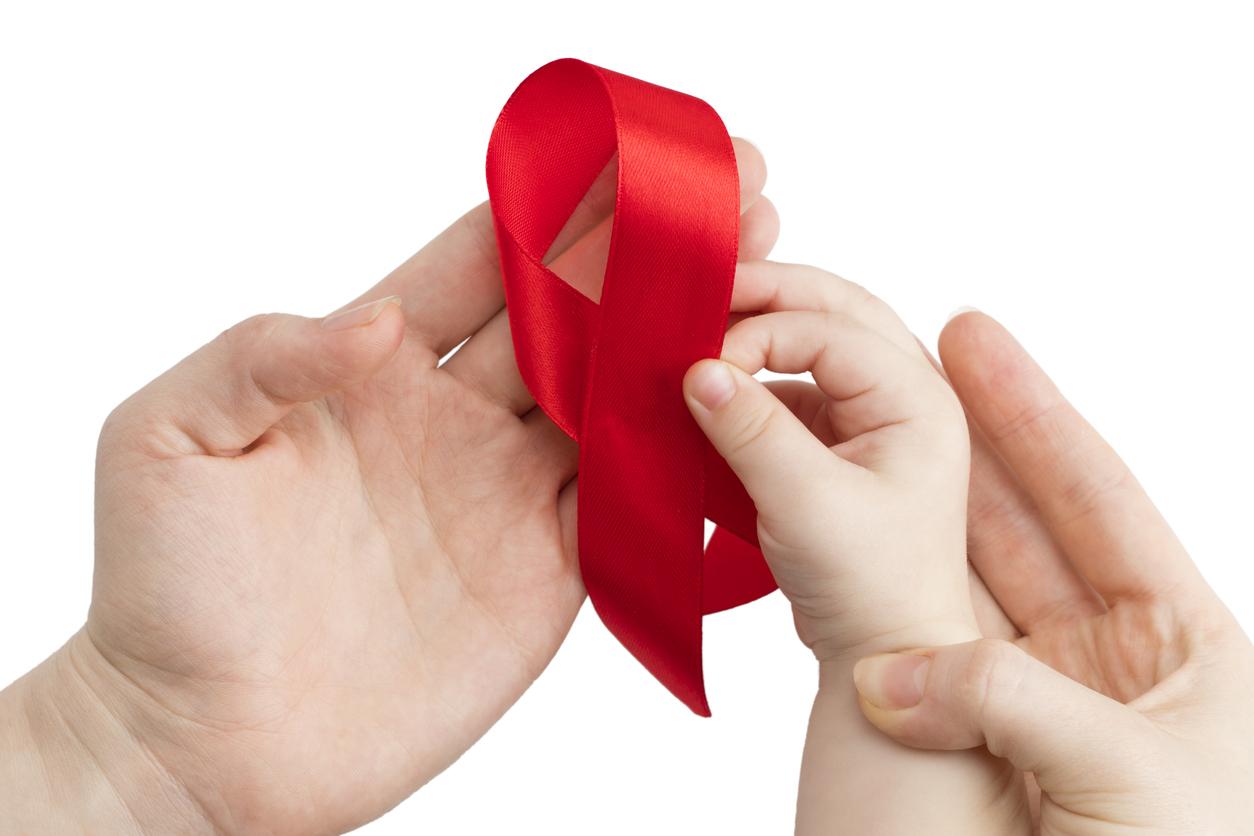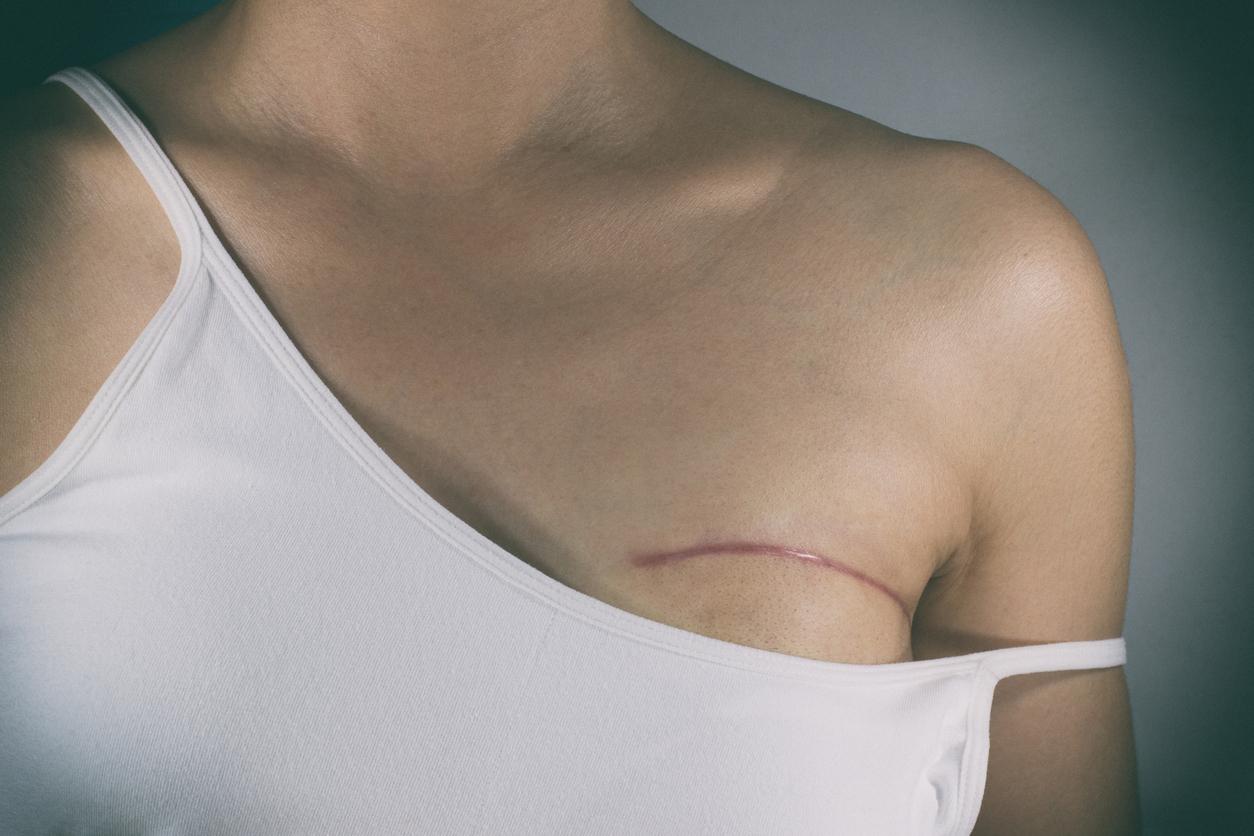Every year, 200,000 French women experience a natural termination of pregnancy. However, it is still a taboo subject. To break the law of silence on this loss of the fetus, the testimony of Mathilde Lemiesle, member of the collective “Miscarriage, true experience”, illustrator and author of the comic strip “My almost nothings”.

– Why Doctor: In 2022, one in four pregnancies ends in a “miscarriage” in the first five months. To break the taboo around natural pregnancy terminations and fight against isolation and silence, you decided to expose your “almost nothings”, as the practitioners called them, in a comic strip. What prompted you to confide in this intimate subject?
Mathilde Lemiesle: I had this need to share my story but also to show that these natural pregnancy terminations exist. I wanted women and couples going through this difficult event to realize that a “miscarriage” is far from trivial. In this comic strip, the idea is to show all the complicated moments that we go through and the emotions felt after the pregnancy ends.
– In your comic, you say that you got pregnant for the first time in 2015, more precisely at 30 years old. Was it the perfect time to have a baby?
I never thought it was the perfect time. At that time, I just wanted to have a child. Before, I had always told myself that I would wait to have a permanent job and a house, but at 30, I had none of that. I had a precarious job and I didn’t even have a permit. But the desire for children was very present, so we started with my spouse.
In 2015, I immediately fell pregnant. I’ve always been lucky at this level. The pregnancy was going relatively well. During the dating ultrasound, I did not expect to be told that I had lost my child at eight weeks of amenorrhea. I remember having a slight fear before this exam, but it was inherent in being pregnant. On the other hand, I was not frightened by the “miscarriage”, because I did not think about it. I was aware that these natural terminations of pregnancy existed, but I did not imagine that they occurred so often and that it could happen to me.
– How did you feel when the pregnancy ended?
I felt like I had been betrayed by my own body because it didn’t let me know that the pregnancy was over. I didn’t bleed or hurt. Everything indicated that I was pregnant and that the gestation was going well. At that time, I felt like my body was sticking a knife in my back.
– How did you manage to mourn the baby, the threesome, being a mother?
I didn’t necessarily recover from his “miscarriages”, because I had several in a row. It took me a long time to give up this new life. I consulted a psychologist who helped me realize what was happening to me. There was nothing visual and there was no burial. It was very difficult to mourn something that doesn’t exist, that is invisible.
The thing that helped me in spite of everything to make this mourning, it was to make me tattoo small points in the crook of the arm, one for each stopped pregnancy. This tattoo, which symbolizes my psychological and physical suffering, makes my existing natural pregnancy terminations. It was important to me that they be recognized. Now I have them in my skin. I had always wanted to tattoo myself, but I didn’t know which design I should opt for. After my four “miscarriages”, my partner, who is a tattoo artist, gave me the idea to mark the occasion by having me tattoo these spontaneous terminations of pregnancy. He wanted us to do a little “funeral” ritual so that we could grieve.
It is true that these natural terminations of pregnancy have made us go through several phases. At first, my spouse did not necessarily understand what I was going through. From the third “miscarriage”, he really became aware of what was happening, but he didn’t tell me about it. He felt like he had to stay strong for both of us. I wanted us to fall apart sometimes and experience this sadness together, but that’s not what happened. Thus, this tattoo was also a way for him to mourn.
– Did you feel a feeling of jealousy and injustice towards your friends or members of your family, for example your sister, who managed to have a child without difficulty?
By the time my sister got pregnant, I had already had four “miscarriages”. She had nothing to do with it, but learning about her pregnancy was cataclysmic for me. For several months, I couldn’t talk to him. It was the only solution for me to continue living. At that time, my body reacted badly every time someone talked to me about pregnancy. I had heart palpitations and couldn’t breathe. Physically, it was impossible to bear. Until today, pregnancy announcements and seeing pregnant women make me wonder “why is it so easy for other people”, when it might not be for them. These “miscarriages” really traumatized me.
– How many natural terminations of pregnancy have you experienced?
I experienced four natural terminations of pregnancy. For three of them, I had no warning symptoms. I discovered that I had lost the fetus during a follow-up ultrasound performed during the 10th or 11th week of pregnancy. For one of these “miscarriages”, I bled.
– How was their treatment?
For the first termination of pregnancy, my gynecologist prescribed me a medicine, which I took at home, to evacuate the embryo. She had told me that I was going to have symptoms similar to those of menstruation. But in reality, it was more violent than that. I bled a lot, I had a lot of pain and I even lost consciousness. I was completely unprepared for this. Thus, I want to point out the lack of concrete information about what will happen when taking this drug. We have the impression that we must not say it so as not to alarm the patients. For this first “miscarriage”, I had a sick leave of only two days. It is deplorable!
Another one of my natural pregnancy terminations happened naturally, because I bled. For the last two “miscarriages”, the gynecologist performed an aspiration under general anesthesia. In this case, we go to the hospital. When we are asleep, the specialist sucks the inside of our uterus. For these terminations of pregnancy, I demanded a sick leave of one week. It was out of the question to work directly when I was not well.
– Have you been followed and accompanied by different specialists after each natural termination of pregnancy?
A few days after taking the meds, I did an ultrasound to check that everything was fine, but that was it. I was never offered to consult a psychologist. I had to do it on my own. But I still went to a maternity ward to see a psychologist. He told me “I’m sorry, we only cover pregnancies that are terminated after the 22nd week”. At the time, I felt that my “miscarriages” didn’t matter.
– Did the health professionals give you explanations about the natural termination of pregnancy?
No Unfortunately. As I did several, I decided to do several exams. It turned out that we had no problem with my spouse. During the consultations, the doctors always told me: “It wasn’t your fault, you had nothing to do with it. It’s nature that is well done”. According to practitioners, this was a natural process that occurred because the egg was not viable.
– Have you noticed that your pregnancy terminations were trivialized and minimized by those around you, the medical profession and society?
On the side of my entourage, it was the silence that shocked me and hurt me. I don’t know if it was due to embarrassment, ignorance or not knowing what to say. On the side of the medical profession, it was the lack of information that was violent. They didn’t explain to me what was going on in my body. I had to do my own research.
– Did you want to give up the idea of becoming a mother?
No never. After each “miscarriage”, I always wanted to move on. I felt like the only thing that would heal my wounds would be to get pregnant. Today, I am the mother of a 4 and a half year old little girl and I do not plan to have another child. With my spouse, we are fine like that.
– According to the “Miscarriage, true experience” collective, of which you are a part, the term “miscarriage” is not appropriate and representative of the suffering endured by patients. Can you explain to us why?
This term is not adequate, because nothing is wrong in the context of this natural termination of pregnancy. On the contrary, everything is true from beginning to end. This term and the expression “having a miscarriage” minimize and trivialize this event. Me, I speak of “natural termination of pregnancy” or “arrested pregnancy”. But, I also sometimes say “miscarriage”, because this term encompasses many things and speaks to more people.
– Is your goal with this comic strip and the collective to open the debate around this term which is not adequate?
Using other words to describe this event is fine. But what we really want is better management of “miscarriage” from a medical and social point of view. We want the government to carry out information campaigns on the subject, to offer psychologist sessions reimbursed by Social Security and a 100% paid work stoppage. We also ask that booklets on natural pregnancy termination be made available in all maternity wards and that health professionals be trained.


















